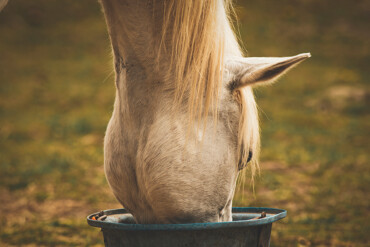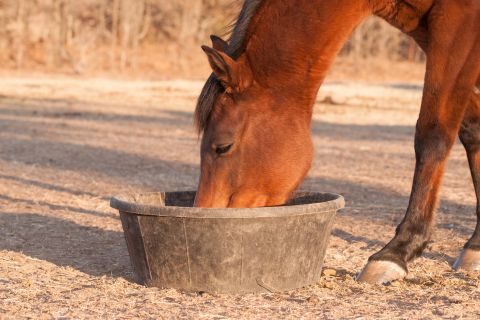Feeding Horses with Digestive Sensitivities: A Comprehensive Guide

Horses with digestive sensitivities require special care and attention to ensure their health and well-being. Feeding these horses properly can prevent discomfort, improve nutrient absorption, and reduce the risk of digestive disorders such as colic and ulcers. This article explores effective feeding strategies, suitable feed types, and management tips to support horses with sensitive digestive systems.
Understanding Digestive Sensitivities in Horses
Digestive sensitivities in horses can manifest as intolerance to certain feeds, frequent colic episodes, diarrhea, or poor nutrient absorption. These issues often stem from an imbalance in the gut microbiota, inflammation, or underlying health conditions. Recognizing the signs early and adjusting the diet accordingly is crucial.
Key Feeding Strategies
| Strategy | Description |
|---|---|
| Gradual Diet Changes | Introduce new feeds slowly over 7-10 days to allow the digestive system to adapt. |
| High-Quality Forage | Provide fresh, clean hay or pasture to support natural digestion and gut health. |
| Small, Frequent Meals | Feed smaller amounts more often to reduce digestive stress and improve nutrient uptake. |
| Avoiding High-Starch Feeds | Limit grains and concentrates that can disrupt gut flora and cause acidosis. |
| Supplementing Fiber | Use beet pulp or other fiber sources to maintain gut motility and health. |
Suitable Feed Types
- Forage: Timothy, orchard grass, and alfalfa hay are excellent choices.
- Fiber Supplements: Beet pulp, soybean hulls, and psyllium can aid digestion.
- Probiotics and Prebiotics: These support a healthy gut microbiome.
- Low-Starch Concentrates: Specially formulated feeds designed for sensitive horses.
Additional Management Tips
- Ensure constant access to clean, fresh water.
- Maintain a consistent feeding schedule.
- Monitor body condition and weight regularly.
- Avoid sudden changes in exercise routines.
- Consult a veterinarian or equine nutritionist for personalized advice.
Frequently Asked Questions (FAQ)
Q1: How can I tell if my horse has digestive sensitivities?
Signs include frequent colic, diarrhea, weight loss, and poor coat condition.
Q2: Can probiotics help my horse’s digestion?
Yes, probiotics can help balance gut bacteria and improve digestion.
Q3: Is it safe to feed alfalfa hay to sensitive horses?
Alfalfa is high in protein and calcium; it can be beneficial but should be fed in moderation.
Q4: How often should I feed a horse with digestive sensitivities?
Smaller, more frequent meals are recommended to reduce digestive stress.
By following these guidelines, horse owners can better manage digestive sensitivities and promote their horses’ overall health and comfort. Proper nutrition tailored to individual needs is key to preventing digestive issues and ensuring a happy, healthy horse.
